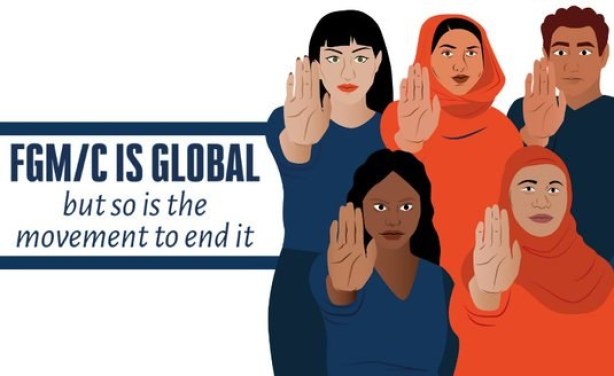
A report by Equality Now calls on governments, the international community, and donors to recognize female genital cutting as a global issue, requiring urgent global attention.
Sierra Leone has one of the highest rates of female genital mutilation in Africa. According to UNICEF figures from 2017, the practice has been performed on an estimated 86% of women and girls in the country. Despite decades of campaigns, the traditional practice has hardly declined. This doesn't deter Rugiatu Turay, one of Sierra Leone's most well-known anti-FGM campaigners from fighting cutting. She founded the grassroots anti-FGM group the Amazonian Initiative Movement in 2002, is a former deputy minister of social welfare, gender and children's affairs and in 2020 won a German human rights prize, the Theodor Haecker award, for her work. FGM involves the partial or total removal of the female genital organs, such as the clitoris or labia. Besides severe bleeding, FGM can cause a variety of health issues from infections and cysts to infertility and complications in childbirth.

A report by Equality Now calls on governments, the international community, and donors to recognize female genital cutting as a global issue, requiring urgent global attention.
Female genital mutilation affects far more countries than previously thought, a new study says. FGM is traditionally associated with a swathe of African countries, but the study hi Read more »
Amid media reports of the continuing genital mutilation of girls in parts of Nigeria and Uganda, the heads of three United Nations agencies have marked the "International Day of ... Read more »
AllAfrica publishes around 400 reports a day from more than 100 news organizations and over 500 other institutions and individuals, representing a diversity of positions on every topic. We publish news and views ranging from vigorous opponents of governments to government publications and spokespersons. Publishers named above each report are responsible for their own content, which AllAfrica does not have the legal right to edit or correct.
Articles and commentaries that identify allAfrica.com as the publisher are produced or commissioned by AllAfrica. To address comments or complaints, please Contact us.